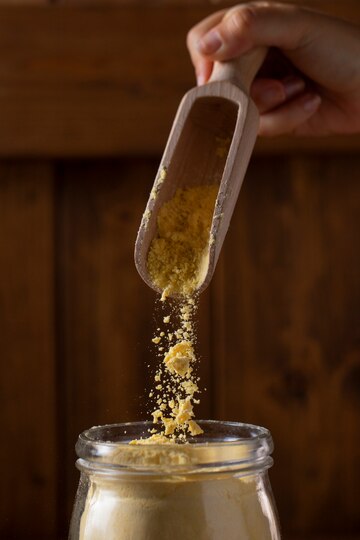11Nov
The Role of Ethanol in Vinegar and Yeast Production: From Fermentation to Flavors

Ethanol is a versatile ingredient with widespread uses across various industries, particularly in food and beverage production. In both vinegar and yeast production, ethanol plays a foundational role, providing the basis for creating familiar flavors and aromas. From the fermentation process that converts ethanol to acetic acid in vinegar to ethanol's role in yeast fermentation for bread and beverages, this compound is essential in shaping many culinary staples. Let’s explore the fascinating journey of ethanol in vinegar and yeast production, diving into how it contributes to taste, texture, and the culinary experiences we enjoy every day.
How Ethanol is Used in Vinegar Production
Vinegar production is a process that transforms ethanol into acetic acid through fermentation. This acetic acid gives vinegar its distinctive tangy flavor and makes it a popular ingredient in cooking, pickling, and food preservation.
-
Ethanol Fermentation: The Foundation of Vinegar:
The journey of vinegar begins with ethanol, which can be derived from various sources, including fermented grains, fruits, and alcoholic beverages like wine. This ethanol is converted to vinegar through a two-step fermentation process:
- Alcoholic Fermentation: In this initial step, yeast breaks down sugars to produce ethanol and carbon dioxide. For example, in wine vinegar, the grapes ferment to form ethanol.
- Acetic Acid Fermentation: Once ethanol is present, acetic acid bacteria (like Acetobacter) take over, converting ethanol into acetic acid through a process called acetous fermentation. This step requires oxygen, which is why vinegar is often produced in open or aerated systems.
-
Types of Vinegar and Ethanol Sources:
Ethanol’s versatility allows it to be derived from various sources, which influences the final flavor of the vinegar. Here are a few examples:
- Wine Vinegar: Made from ethanol in wine, giving it a rich, complex flavor suitable for culinary applications.
- Apple Cider Vinegar: Uses ethanol derived from apple fermentation, resulting in a tangy, fruity vinegar.
- Grain-Based Vinegars: Derived from grains like barley, corn, or rice, yielding a milder flavor profile.
- Flavor Enhancement and Preservation: Ethanol’s conversion to acetic acid in vinegar adds a sharp, tangy flavor that enhances dishes and balances flavors. Vinegar’s acidity, a direct result of this ethanol-to-acid transformation, also preserves food by creating an environment inhospitable to bacteria and molds, making vinegar essential in pickling and food preservation.
Benefits of Ethanol in Vinegar Production
- Natural Preservative Properties: The acetic acid created from ethanol in vinegar acts as a natural preservative. It inhibits the growth of harmful bacteria, making vinegar an effective food preservative and an essential ingredient in pickling.
- Flavor Profile Customization: By altering the base source of ethanol, manufacturers can create a wide variety of vinegar flavors. Ethanol’s flexibility allows vinegar to be customized for everything from light salad dressings to intense pickling solutions.
- Eco-Friendly and Sustainable: Since ethanol can be derived from plant-based sources, vinegar production is often eco-friendly, aligning with the rising consumer demand for sustainable and natural products. This is particularly true of vinegars made from organic wines or apple cider sources.
Ethanol in Yeast Production: Essential for Baking and Brewing

Ethanol also plays a critical role in yeast production, primarily in baking and brewing. Yeast, a microorganism commonly used to leaven bread and brew alcoholic beverages, produces ethanol as a natural byproduct during fermentation.
-
Yeast Fermentation and Ethanol Production:
Yeast cells consume sugars and starches, breaking them down through a process called glycolysis. The result of this fermentation process is ethanol and carbon dioxide. Here’s how it plays out in different applications:
- Bread Baking: In bread-making, carbon dioxide is responsible for the dough’s rise, while ethanol evaporates during baking, leaving behind airy, fluffy bread.
- Brewing Beer and Wine: In brewing, the ethanol produced by yeast is the main component in alcoholic beverages, contributing to both flavor and the alcohol content in beer, wine, and spirits.
- The Role of Ethanol in Baking: Though ethanol largely evaporates during baking, its presence affects the bread’s texture and flavor profile. During fermentation, ethanol interacts with other compounds in the dough, contributing to the bread’s taste. The release of ethanol also helps activate gluten, enhancing the dough’s elasticity and creating a better structure.
- Ethanol in Alcoholic Beverage Production: Ethanol is, of course, the primary alcohol in alcoholic beverages, giving beer, wine, and spirits their alcoholic content. Ethanol also influences the flavor and aroma of these beverages; fermentation time, yeast strain, and other factors can alter ethanol production, creating unique flavor profiles in different brews and vintages.
Benefits of Ethanol in Yeast Production
- Natural Leavening Agent: Ethanol production is a natural result of yeast fermentation, which helps create the airy, light texture in breads. Without ethanol and carbon dioxide production, bread wouldn’t rise as effectively, resulting in dense, unappealing textures.
- Flavor and Aroma Development: Ethanol plays a crucial role in flavor and aroma development, particularly in alcoholic beverages. Its interaction with other fermentation byproducts creates complex notes that make each wine, beer, or spirit unique. In bread, ethanol also adds subtle flavor notes that contribute to the overall taste.
- Improving Digestibility: Ethanol fermentation aids in breaking down sugars and starches, making bread more digestible. This is especially important in sourdough or long-fermented breads, where extended fermentation allows the yeast to fully break down complex carbohydrates, reducing gluten content and making the bread easier on the digestive system.
Challenges and Considerations in Ethanol Fermentation for Vinegar and Yeast
- Controlling Fermentation Variables: Both vinegar and yeast fermentation rely on precise conditions, including temperature, pH, and oxygen levels. If these conditions are not carefully managed, the fermentation process can yield undesirable byproducts that affect the flavor, texture, and quality of the final product.
- Quality of Ethanol Source: The source of ethanol significantly impacts flavor, especially in vinegar. For example, poor-quality wine can lead to vinegar with off-flavors, so producers must ensure high-quality ethanol sources for consistent and desirable results.
- Storage and Stability: Products containing ethanol, such as vinegar and alcoholic beverages, must be stored properly to prevent spoilage. Exposure to air, light, or extreme temperatures can degrade the quality, making proper storage essential for preserving freshness and taste.
The Future of Ethanol in Vinegar and Yeast Products
As the demand for natural and sustainable products grows, ethanol’s role in vinegar and yeast production is likely to expand. Innovative techniques in ethanol sourcing and fermentation may lead to more diverse flavors and specialized products. Additionally, the focus on health-conscious and eco-friendly products means that vinegar and yeast products may increasingly be derived from organic and renewable sources of ethanol.
Technological advancements in fermentation may also allow producers to refine ethanol production, achieving more consistent and tailored flavor profiles in vinegar and alcoholic beverages. With sustainable production methods and eco-friendly ingredients, ethanol continues to support the development of traditional and modern culinary products, contributing to the quality and versatility of vinegar and yeast-based goods.
Conclusion
Ethanol is an indispensable component in both vinegar and yeast production, serving as a foundation for flavor, fermentation, and preservation. In vinegar production, ethanol undergoes a transformation that gives vinegar its signature tang and preserving qualities, while in yeast-based products, ethanol is essential for rising bread and brewing beverages. Through its natural origins and versatility, ethanol continues to shape our food landscape, from enhancing the flavor of meals to preserving food naturally.
The next time you enjoy the tang of a vinegar-based salad dressing, savor a piece of freshly baked bread, or sip a craft beer, remember the role of ethanol in bringing these culinary experiences to life. As an unsung hero in our kitchens and pantries, ethanol quietly enriches the flavors, textures, and quality of foods we know and love.
Recent Posts
- Ethanol Screen Wash: A Winter Driving Essential
- Ethanol in Industrial Chemical Manufacturing: A Versatile Building Block for Innovation
- Ethanol as a Biofuel: Fueling the Future with Renewable Energy
- The Role of Ethanol as a Preserving Agent: Enhancing Shelf Life and Safety
- Ethanol in Paints and Varnishes: Enhancing Performance and Sustainability